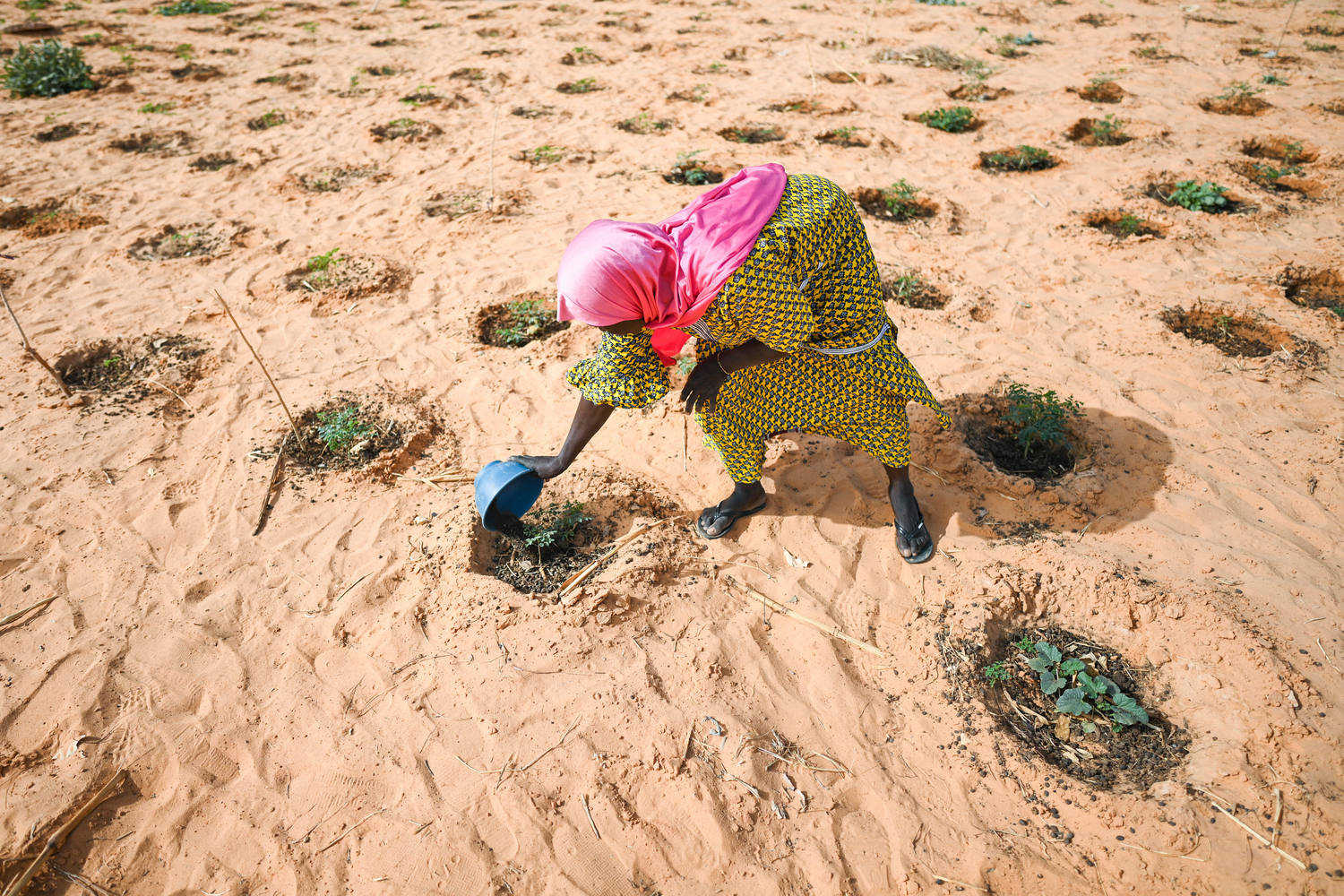Northern CAR: Isolated families call for basic security - and clean drinking water
Northern CAR: Isolated families call for basic security - and clean drinking water

BANGUI, Central African Republic, August 26 (UNHCR) - UNHCR staff have found more than 2,000 displaced civilians living in appalling conditions some 400 kilometres north of Bangui, capital of the Central African Republic (CAR), sick, hungry and forced to drink water alongside their cows.
"I have worked with a lot of internally displaced people (IDPs) and refugees in DRC (Democratic Republic of the Congo), Chad and Cote d' Ivoire but I have never seen people living under such circumstances," said Annika Sjoberg, UNHCR's associate protection officer in Bangui, one of the first people to talk to the villagers.
Isolated for months because of insecurity, these internally displaced people, who are mainly ethnic Ngamas from Kabo, said they fled attacks on their homes by various armed groups beginning last November and again in April. They are now staying in the villages of Bokayanga, Kengar, Gonkira, Gbaizara and Batangafo near the small town of Kabo.
UNHCR staff, who only gained access to the IDPs in the second week of August as part of an interagency mission, reported that the displaced have very limited access to safe drinking water and in some places they are forced to drink water in open fields along with their livestock.
They live in mud huts and face serious health risks because of lack of water and sanitation facilities. Diarrhoea and malaria are widespread. Basic health care is only available in the town of Kabo. Most of their food has been destroyed by locusts or stolen by armed bandits.
The IDPs also told UNHCR about widespread rape, killings, arbitrary arrests, torture and destruction of property. They said these atrocities have mostly been perpetrated by armed cattle farmers, but also by bandits and other armed groups in the area, including government soldiers.
Sjoberg said she interviewed relatives of two 12-year old girls who were raped, one when she went to get water and the other at home in front of her parents. "When interviewing the women and men, you could really feel their anger and despair," she added.
There have been no clashes in and around Kabo since July, when government forces and the rebel Front Democratique du Peuple Centrafricain (FDPC) struck a peace agreement that led to improved humanitarian access to the area.
Despite the improvement, the IDPs say are afraid of returning to their home villages because of continued harassment by armed elements. They appealed for clean drinking water, food, education, government protection from the armed cattle farmers, and general security. They also said they want plastic sheeting for temporary shelter while they are rebuilding their houses.
UNHCR hopes that security conditions will continue so that it can deliver assistance to these people, and has asked medical organisations to send mobile clinics to assist the families.
It is estimated more than 125,000 people, many of them women and children, have been forced out of their homes in northern CAR since 2005. Another 137,000 are refugees in the neighbouring Chad and Cameroon.
UNHCR has supported IDPs in the Kabo area since 2007, when it opened an office in nearby Kaga-Bandoro.








